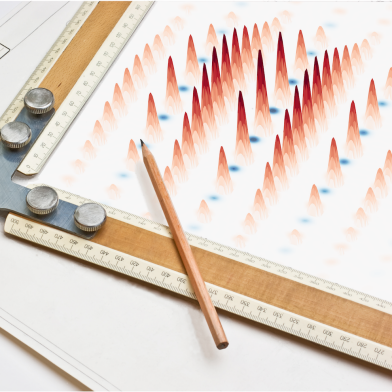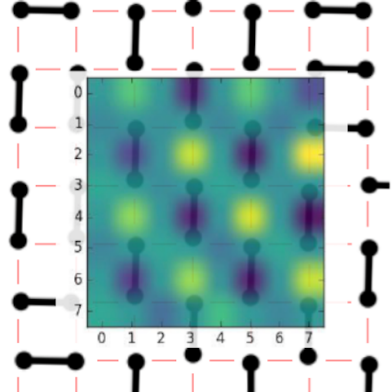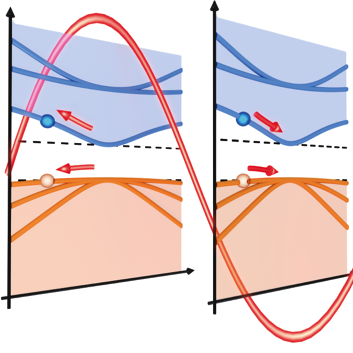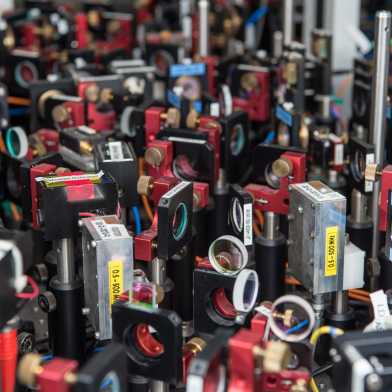03
Easing uncertainty
Institute for Quantum Electronics (IQE)

Heisenberg's uncertainty principle — the fundamental impossibility of simultaneously measuring entities such as position and momentum exactly — is at the heart of quantum theory. ETH physicists have now demonstrated an elegant way to relax this intrinsic incompatibility using a mechanical oscillator formed by a single trapped ion, opening up a route for fundamental studies and practical uses alike.
A novel test bed for non-equilibrium many-body physics
Institute for Quantum Electronics (IQE)

The behaviour of electrons in a material is typically difficult to predict. Novel insight comes now from experiments and simulations performed by a team led by ETH physicists who have studied electronic transport properties in a one-dimensional quantum wire containing a mesoscopic lattice.
Teaching machines to spot the essential
Institute for Theoretical Physics (ITP)

Two physicists at ETH Zurich and the Hebrew University of Jerusalem have developed a novel machine-learning algorithm that analyses large data sets describing a physical system and extract from them the essential information needed to understand the underlying physics.
A milestone in petahertz electronics
Institute for Quantum Electronics (IQE)

In a semiconductor, electrons can be excited by absorbing laser light. Advances during the past decade enabled measuring this fundamental physical mechanism on timescales below a femtosecond (10-15 s). ETH physicists now for the first time resolved the response of electrons in gallium arsenide at the attosecond (10-18 s) timescale, and gained unexpected insights for future ultrafast opto-electronic devices with operation frequencies in the petahertz regime.
Mastering metastable matter
Institute for Quantum Electronics (IQE)

The phenomenon of metastability — when a system is in a state that is stable but not the one of least energy — is widely observed in nature and technology. Yet, many aspects underlying the mechanisms governing the behaviour and dynamics of such systems remain unexplored. ETH physicists have now demonstrated a promising platform for studying metastability on a fundamental level, using an exquisitely well controlled gas consisting of a few ten thousands of atoms.